Read Episode 1 here, Episode 2 here, Episode 3 here and Episode 4 here.
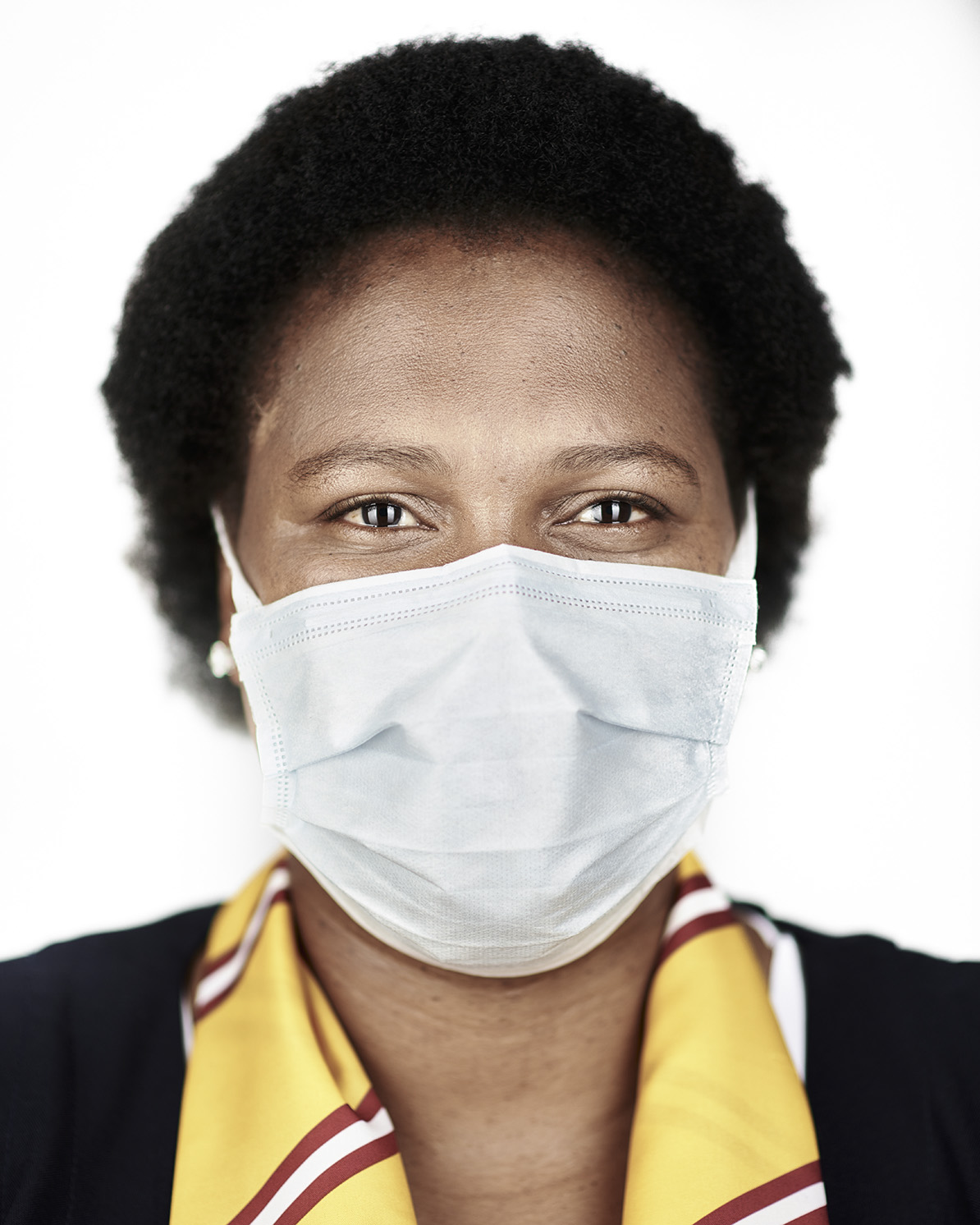
Monica Ntsangani Mbewu, King Williams Town, Eastern Cape. (Photo: Thom Pierce)
Monica Ntsangani Mbewu: Nurse, King Williams Town, Eastern Cape
“But not even in our wildest nightmares did we as health workers ever imagine that we would be in such a grave health crisis as we are now. And never have we imagined that in the course of performing our duties, we would be risking our very lives.
It need not be this way. We know the inherent risks involved in the kind of work we do. We know that whenever we treat sick people, we risk getting infections. With highly infectious diseases such as Covid-19, we know the risk is acute, and yet we do our work with the utmost dedication.”
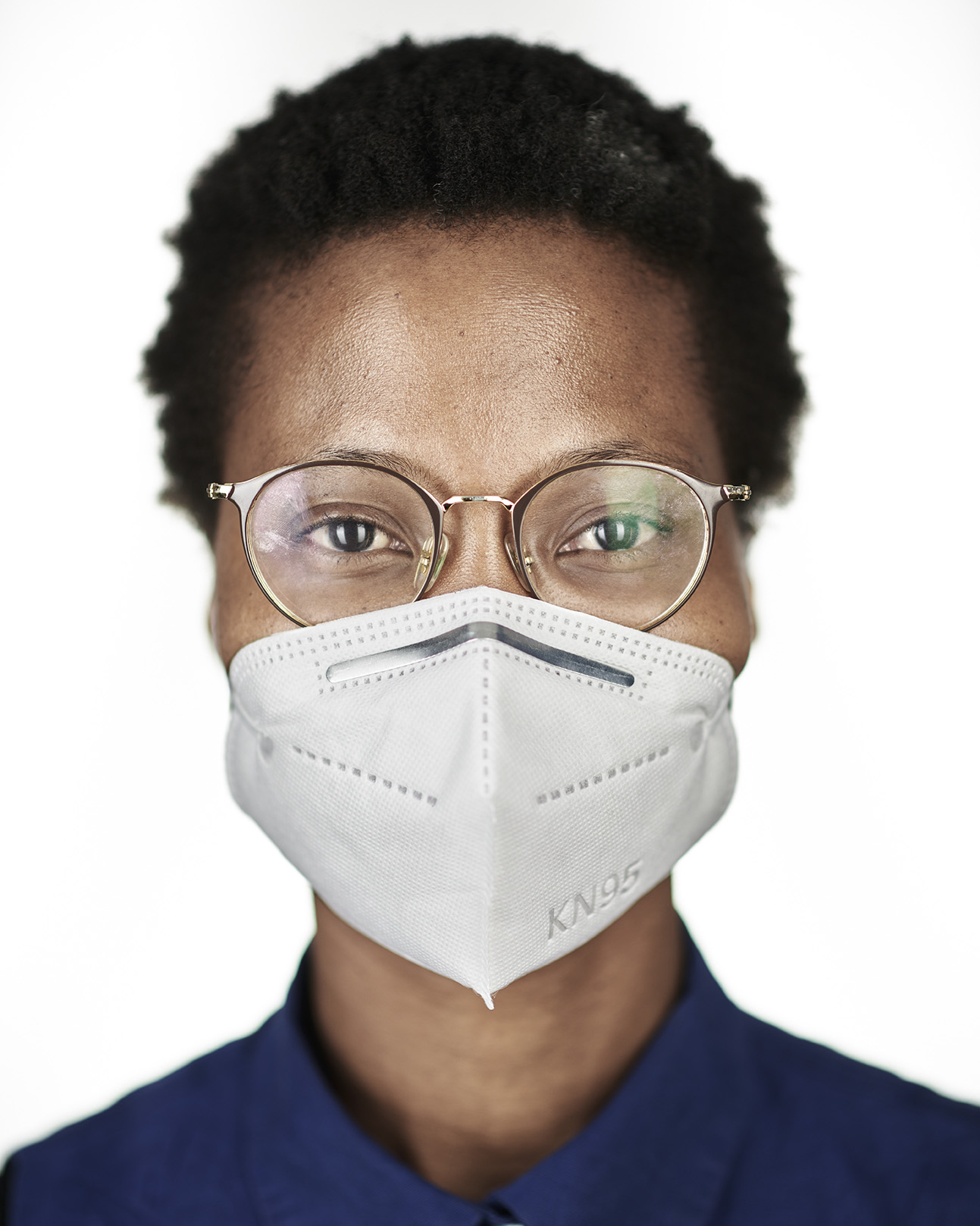
Lokhuthula Maphalala, Port Elizabeth, Eastern Cape. (Photo: Thom Pierce)
Lokuthula Maphalala: Doctor, Eastern Cape
“It’s not just about the doctors, it’s everyone in the system: the cleaners, the kitchen staff, the porters, the security guards. Everyone is doing their bit and that has made all the difference.”
When South Africa went into lockdown, many of us stayed at home and waited for the healthcare system to be capacitated in order to deal with the impending onslaught of Covid-19. Behind the scenes, healthcare workers across the country were thrown into the deep end. Long before President Cyril Ramaphosa announced that the storm was here, healthcare workers were tasked with preparing their under-resourced and short-staffed facilities for the advent of the storm.
Initially 35-year-old Dr Lokuthula Maphalala was told that she would not be directly involved in the Covid-19 response of Port Elizabeth’s Dora Nginza Provincial Hospital. A few weeks later, it was her office that was repurposed as a donning room (where staff change into their PPE). Shortly after that, she and a matron created a space where Covid-19 positive patients would be admitted. “The matron and I literally moved the beds by ourselves. We pushed them into the right position while everyone else watched in utter disbelief.”
The preparation of the Covid-19 ward was an uphill battle. Plans that were set up theoretically fell apart when the first patient turned up at the hospital. Almost instantly, everyone realised that their plan was impractical and that it was time to go back to the drawing board. Maphalala recalls that there were “so many meetings” and many negotiations. “It took a while before people realised that Covid-19 was here and that they had to work together.”
Reflecting on that initial period of preparation, Maphalala believes that many of her colleagues struggled to vocalise their valid fear and anxieties. “What people needed to say was ‘I am scared and I don’t want to see patients.’ Not being able to say those words meant that their fears and anxieties manifested as resistance to treating patients at the facility.”
Workers were so afraid of coming into contact with the virus that they fell back on past issues as reasons to not deal with Covid-19 patients. “People were complaining about the fact that we had broken windows, which is an issue, but this was not the time to be striking about broken windows,” said Maphalala.
Change and acceptance were slow, but once workers started to realise that Covid-19 was no longer “out there”, people started to come together.
At the peak of the pandemic, Dora Nginza was seeing up to 25 patients a day. Most were dead on arrival and some were said to have passed on in the cars they were travelling in. For Maphalala those deaths also spoke to the value people put on their own lives. “So many people would turn up at the hospital when it was too late. Had they turned up even a day before, we could have saved their lives,” she lamented.
As things started to settle down and get into a routine, workers at the hospital realised that they were stronger together. The emergency medical services are better than they’ve ever been and many of the workers are giving of themselves in ways that none of them could have imagined a few months ago.
According to Maphalala, what has made things work at the hospital is all the different cogs coming together to move their response forward. “It’s not just about the doctors – it’s everyone in the system: the cleaners, the kitchen staff, the porters, the security guards. Everyone is doing their bit and that has made all the difference.”
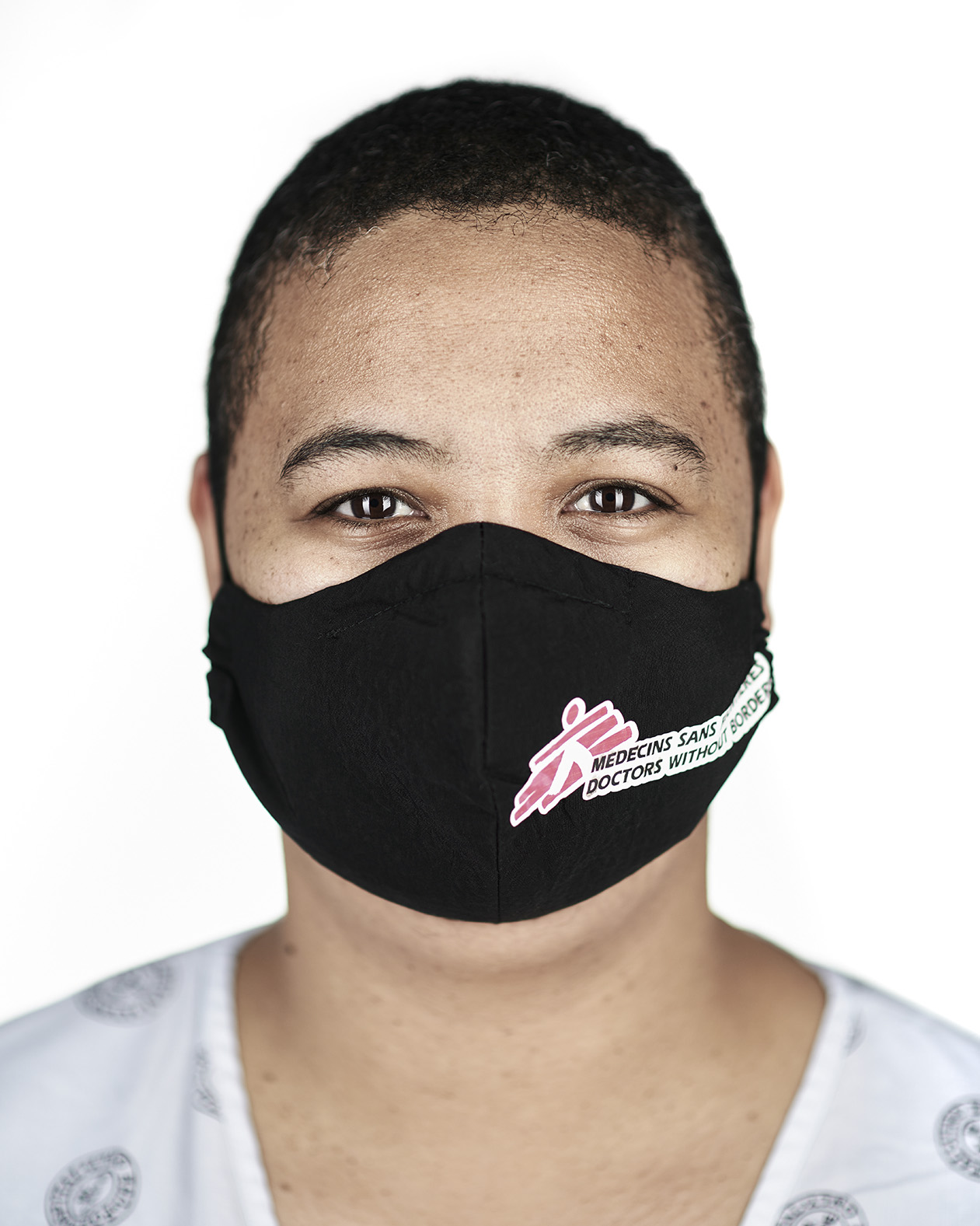
Celeste Jonker, Khayelitsha, Western Cape.
(Photo: Thom Pierce)
Celeste Jonker: Doctor, Western Cape
Many of the predictions on the effects of the pandemic in South Africa had painted a dire outlook for a country with an already ailing healthcare system. But what the experts did not count on was the experience many South African healthcare workers already have in terms of working with minimal resources, staff shortages and overburdened facilities.
When the Western Cape battled its Covid-19 peak, Médecins Sans Frontières (MSF), also known as Doctors without Borders, stepped in to assist in the response to the pandemic. Within the space of two months a basketball court in Khayelitsha was converted into a fully equipped hospital with (60) beds. Patients from Khayelitsha District Hospital were transferred to what came to be known as the “Khayelitsha field hospital”.
Celeste Jonker, 36, who had been working as a senior medical doctor for cruise ships before lockdown, took the role of medical activities manager at the facility. In this position she had to deal with many logistical issues in a bid to ensure that healthcare professionals at the facility were able to focus on treating the patients who were sent to the field hospital. “When we hit the peak much of my work was about putting systems in place that allowed us to treat patients optimally. It was about figuring out staffing, the transportation of patients, the catering, the waste management and the delivery of linen.”
Fortunately most of these logistics were primarily being dealt with at the Khayelitsha Hospital.
In the first three weeks of June, the hospital had between 10 and 20 patients per day. On the busiest day, there were 55 patients at the field hospital. There were two levels of patients being treated at the facility – those who were severely ill and those who were considered moderately ill to severe. “Most of the people who were severely ill had other issues such as diabetes and hypertension. We also found that in patients who had slight renal issues, Covid-19 really inflamed those conditions,” said Jonker.
The increased workload was challenging. Doctors at the facility had not anticipated that they would be attending to patients who required so much work. For example, they had to deal with patients who had IV lines as well as patients who needed feeding.
While international doctors were completely overwhelmed and possibly even surprised by the way the pandemic pressured their healthcare facilities, this is the norm in South Africa. “Doctors here know what it’s like to have to make the choice of who gets put on a ventilator and who doesn’t. We know how to use our resources sparingly. In a South African working environment, there isn’t a big difference between our normal and working in a pandemic. It wasn’t as big a shift in working as it was for doctors overseas,” said Jonker.
Speaking about lessons learnt from this experience, Jonker reflected on the ways in which different stakeholders came together speedily to provide solutions. “It’s what humans do. Talking about it and thinking about it fall away and people do what needs to be done,” she said.
The government in the Western Cape truly put its best foot forward. For Jonker it is clear that the government is capable and also has the means to respond to a crisis.
“Hopefully this will always be an example of the fact that we don’t need a pandemic to mobilise resources. The government and different sectors can pull together and really make a difference.”
The Khayelitsha field hospital has officially closed its doors after successfully helping the Western Cape weather the storm. MSF is currently monitoring the situation on the rest of the continent and should the need arise, it will mobilise its resources and expertise to support other African countries.
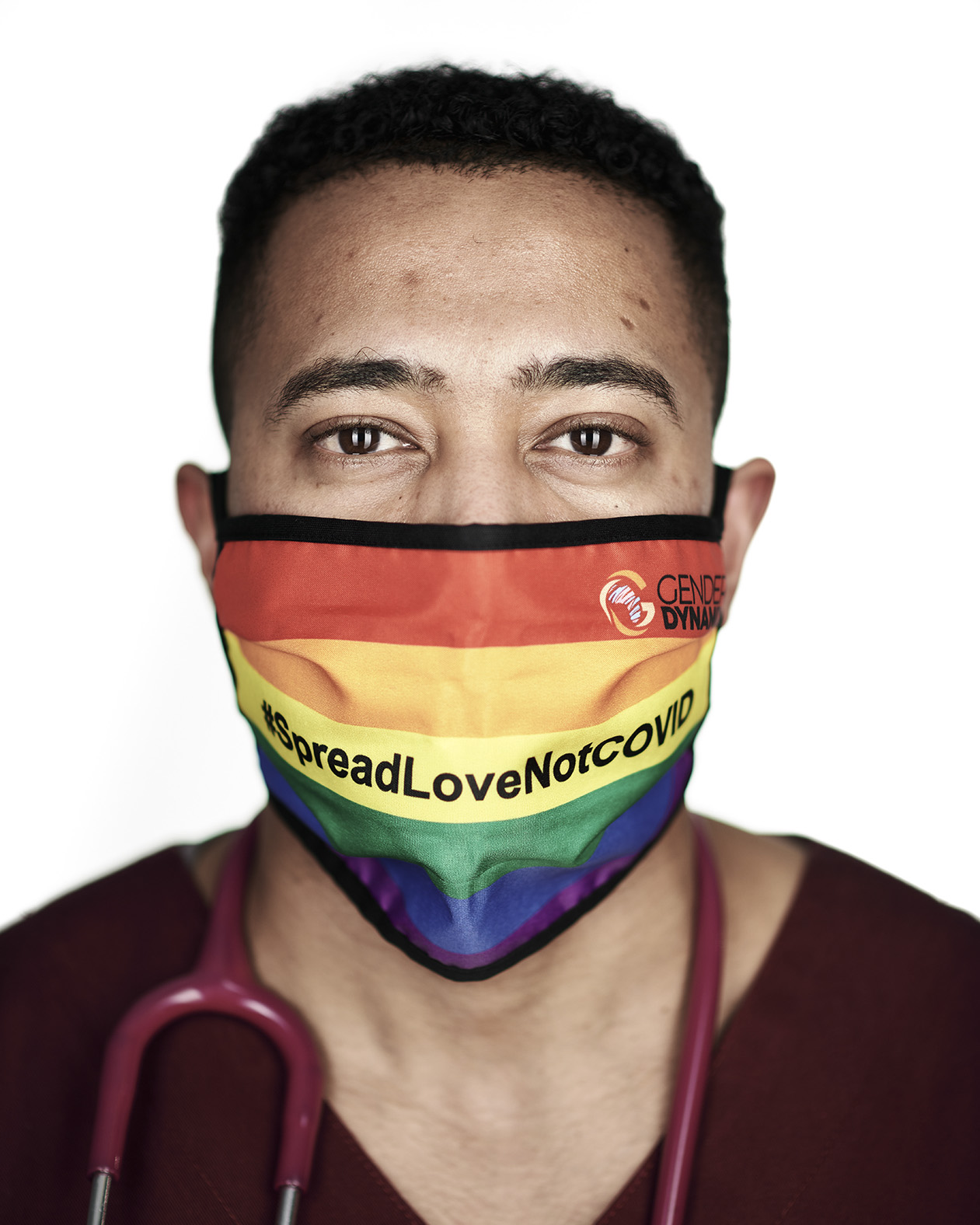
Andrew Williams, Robertson, Western Cape.
(Photo: Thom Pierce)
Andrew Williams: Doctor, Western Cape
“Everyone has been hailing the medical fraternity as heroes, but that’s not the whole story. There’s also the kitchen staff who make sure that patients are fed and the porters who get people to where they need to be. Everybody has a role to play.”
Andrew Williams does not believe he is a hero – instead he sees himself as someone who is doing a job that he loves. Regardless of the challenges he faced, such as contracting the virus himself, he was not prepared to give up,
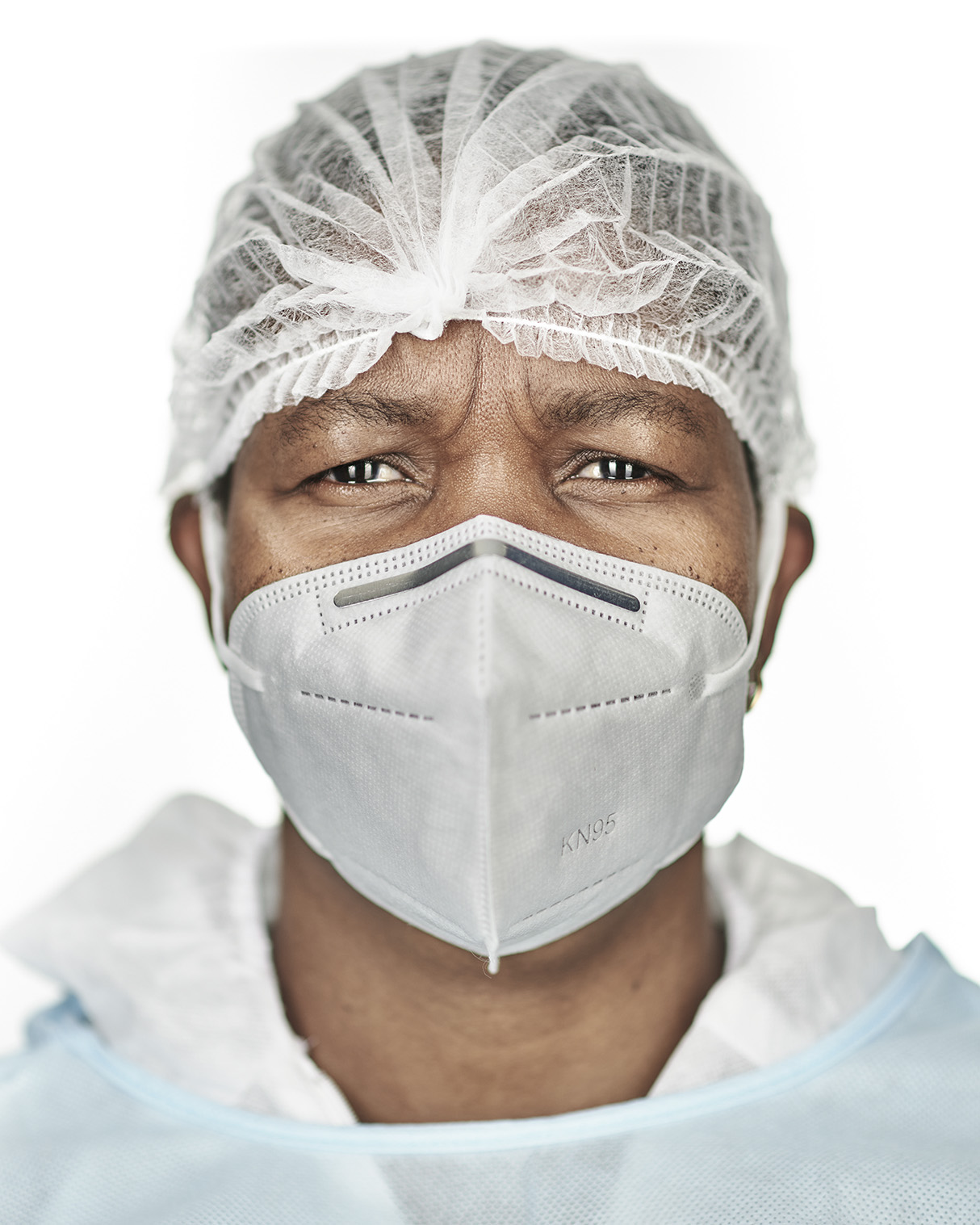
Joyce Dhlodhlo, Themba, Mpumalanga. (Photo: Thom Pierce)
Dr Joyce Dhlodhlo: Doctor, Mpumalanga
“Since the start of the Pandemic, we have all learnt to take infection and prevention precautionary measures very seriously. Other than just washing my hands constantly, I also sanitise my pens, keys, door handles and other surfaces.”
In light of the Covid-19 Pandemic, doctors themselves have had to implement safety precautions more diligently. They take extra care at work and when they are at home or going about their daily lives.
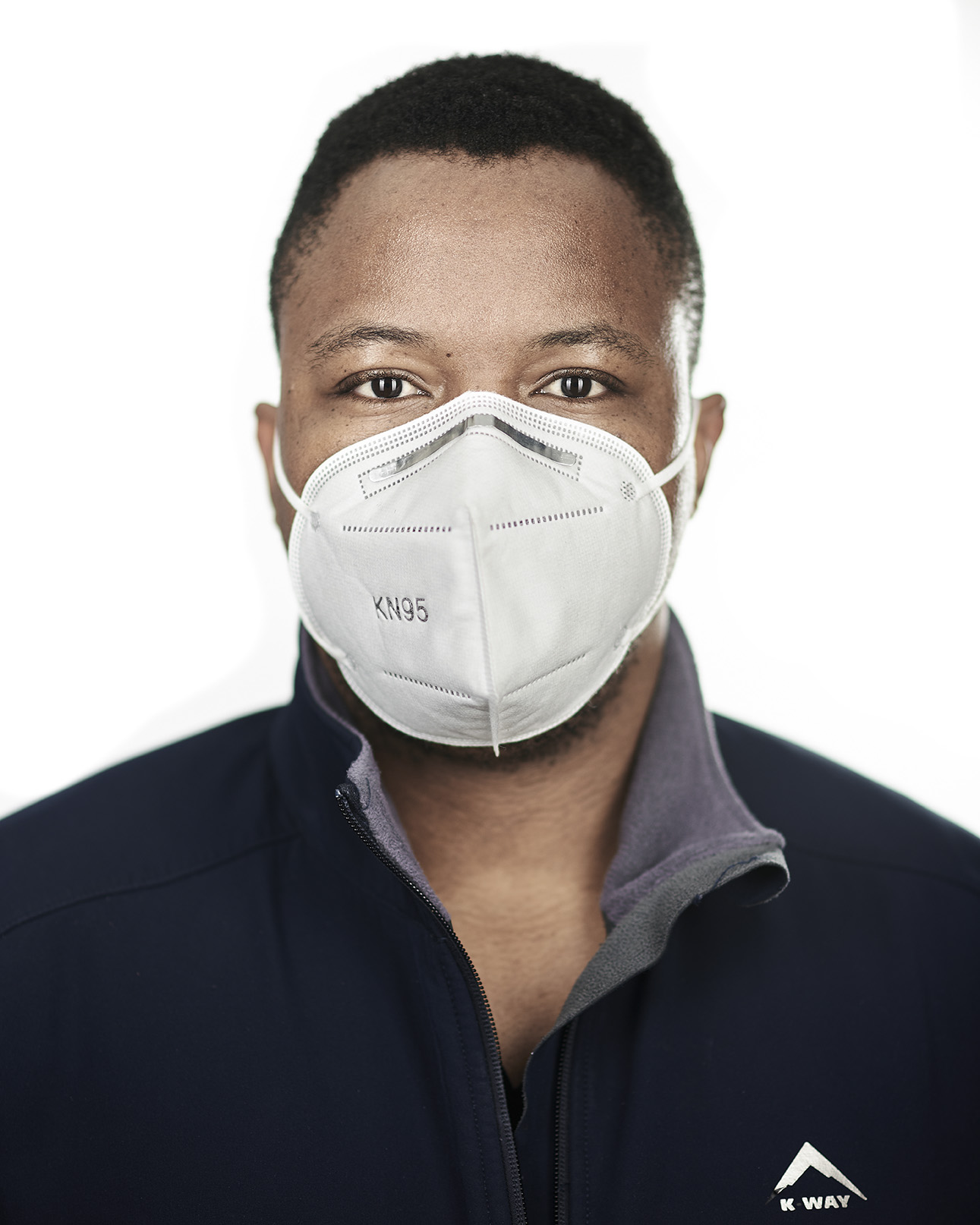
Khayalethu Dlamini, Pretoria, Gauteng. (Photo: Thom Pierce)
Khayalethu Dlamini: Doctor, Gauteng
Dr Khayalethu Dlamini, who works at Kalafong Hospital in Pretoria, describes diagnosing his first Covid-19-positive patient as a “surreal” experience.
Before South Africa identified its first case, Dlamini had steadily been monitoring the situation in international countries, particularly in Italy . Although he was aware of the virus, he is quick to admit: “None of us could have predicted the aftermath of the pandemic in South Africa.”
In an attempt to deal with the oncoming storm, Kalafong Hospital set up an outdoor testing facility on its premises. Patients were screened and swabbed in tents outside the hospital, which was where Dlamini diagnosed his first patient.
In that moment, everything he and his colleagues thought they knew went out the window. If Dlamini has learnt anything in this time, it is that when faced with a pandemic, one needs to be prepared for the fact that theoretical plans don’t always work out as you think they will.
Upon making that first positive diagnosis, Dlamini and his partner, who is also a doctor, had the added pressure of having to figure out how they were going to manage the risk of infection in their home.
Together the couple devised a strict routine for themselves which involved changing out of their scrubs and bagging them so they could put them in the wash immediately upon arrival at home. The two were obsessive about sanitising, but despite their conscientious efforts Dlamini’s partner tested positive for Covid-19 while he remained negative.
“People always talk about the possibility of bringing the virus home, but we realised that because of the work that we do, it was already here.”
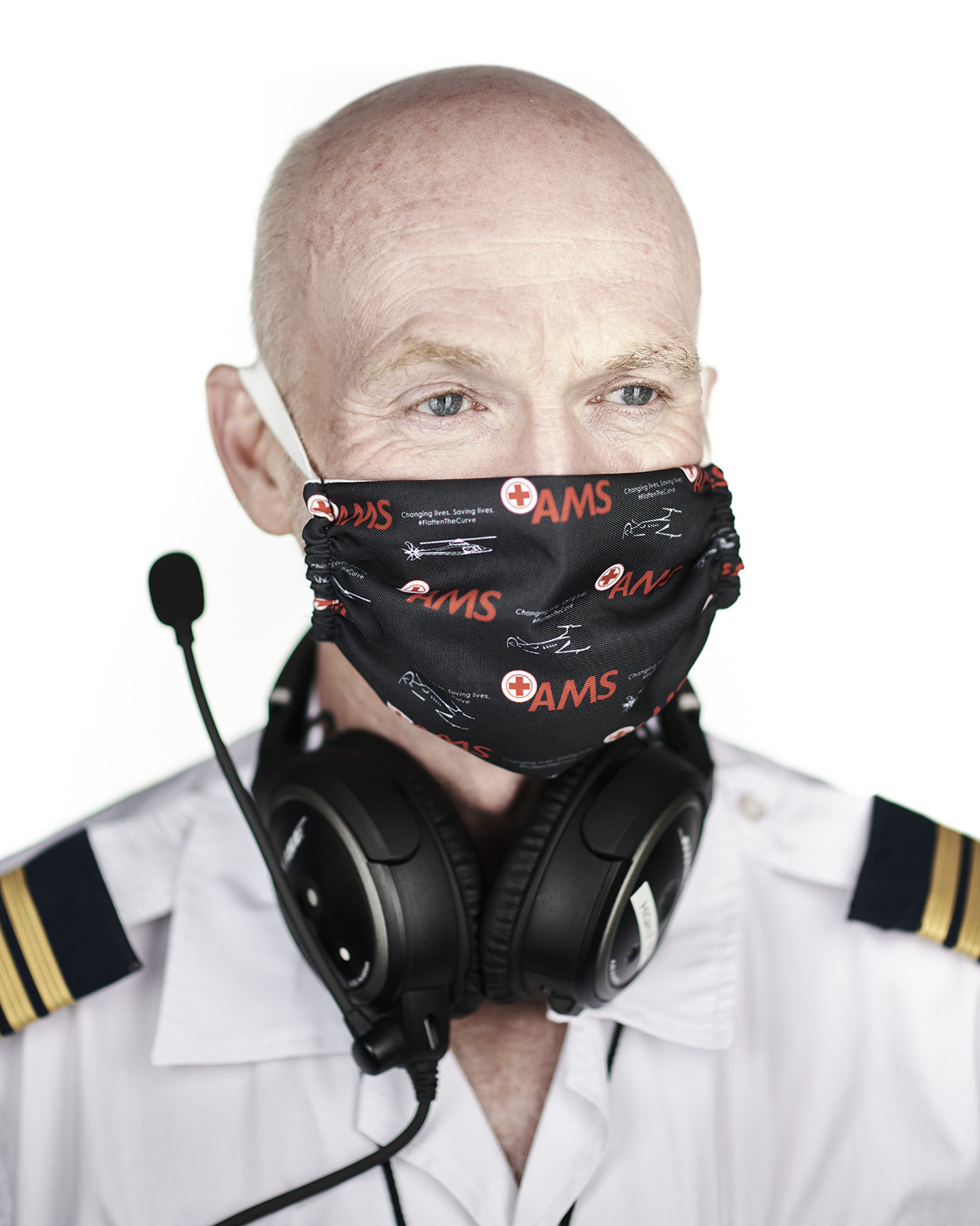
Jon Sargood, Durban, KwaZulu-Natal
(Photo: Thom Pierce)
Jon Sargood: Pilot, Red Cross Air Mercy Services, KwaZulu-Natal
When South Africa went into lockdown, thousands of ordinary South Africans lost their livelihoods and went from just getting by to being on the brink of hunger. Air Mercy Service Pilot Jon Sargood of Durban was not going to stand back and watch thousands of people plunged into crisis.
“I am not the kind of person to pass someone in the street if they need help,” he said.
With that in mind, Sargood initiated a project with the Department of Cooperative Governance and Traditional Affairs to deliver food parcels to hundreds of people in rural KwaZulu-Natal. This programme saw the Air Mercy Service in partnership with the KwaZulu-Natal Department of Health, non-profit organisations and other corporates flying several hundreds of food relief parcels and critical essentials to vulnerable communities.
Even though Sargood has executed such a great feat, he is not completely satisfied. He understands that there are still many more people in need.
On an ordinary day, Sargood would transport medical doctors to provide specialised services such as cataract operations. For the seasoned pilot, the “new normal” is not something to be feared. Relying on years of experience, he takes every day and every challenge as it comes. He believes his training over the years has put him in good stead to navigate the challenges posed by the onset of the pandemic.
“You learn to assess risks, take them and mitigate them.”
While the pilot and his team have not had much involvement in transporting Covid-19-positive patients, he has enjoyed spending time at home with his family. He considers this as one of the biggest positives to have come out of the pandemic. DM/MC
Read Episode 1 here, Episode 2 here, Episode 3 here and Episode 4 here.
Nomatter Ndebele is a writer who specialises in human interest stories. She is passionate about people and telling their stories in a way that inspires human connection. When she isn’t writing she does work in access to human rights and youth development. Nomatter has been a finalist in the Discovery Health Journalism Awards. Thom Pierce is a British photographer, currently based in Johannesburg, South Africa. His work explores the line between documentary, art and portrait photography to engage with humanitarian issues; through photographic essays, installations and exhibitions. He is passionate about human rights and using photography as a tool to connect an audience to issues of injustice. Over a period of years, his work has developed to become primarily focused on the art of activism through photography. He has won several awards for his work and has previously been chosen as a finalist in the Magnum Photography Awards and selected for the Taylor Wessing Photographic Portrait Prize Exhibition at the National Portrait Gallery in London.




 Become an Insider
Become an Insider